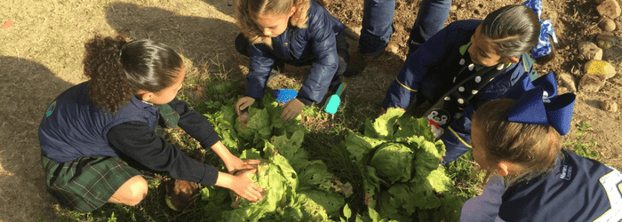
In the Instituto Lomas del Real, our students have contact with nature through activities that take place in the School Garden. This article shares with you some of the activities performed at school so that you can too have an orchard at home.
Urban gardens are a sustainable and efficient option to produce our own plants and vegetables, which, along with ecologic techniques, adds benefits to the environment such as recycling and reusing materials.
Some of the main activities performed by the students in the school garden are:
- Begin by planting the seed. We generally plant vegetables, herbs and medicinal plants. For example, broccoli, carrots, watermelon, onion, lettuce, rosemary, oregano, and mint. These types of plants grow easily in the San Luis Potosí soil despite the dry weather.
- Seedling transplantation. It refers to the transplantation of the seedling to the soil previously prepared with quality and sufficient space between plants.
- This takes place by separating the organic waste and adding dry leaves, then watering it. In one or two months, the soil rich in minerals will be ready to make the plants grow. Said process can be done in cylinder or floor over the soil.
Working in the garden is an enriching experience for the students since it requires responsibility and commitment because watering the garden is what gives the plants life which we will be able to harvest in the future.
Our students follow up of the process. The growth of the person is observed whilst practicing virtues and values because they must be tolerant to weather changes and be patient because the growth of the plants is slow.
Apart from being a bilingual school, the students at the Instituto Lomas del Real study the subject of natural sciences in English where they take notes of the description, procedure and monitoring of the activities within the educational setting.
Along with the subject of gastronomy, an interdisciplinary project is done where the harvest is used to prepare healthy dishes. This way, students achieve meaningful and transcendent learning when they see the results of a process that began in the garden.
It is important to consider that in order to care for a garden, they must look after the maintenance of the planted items, the plants and seedlings which are growing as well as the compost.
The School Garden requires perseverance, order, respect and the engagement of parents, teachers and students. Let’s teach them to take care of our planet.
